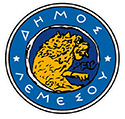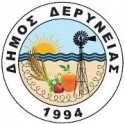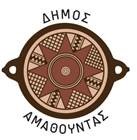The European Commission today congratulates the 27 winners of its Juvenes Translatores translation contest for secondary schools.
The participants could choose to translate between any 2 of the EU’s official languages. Of the 552 possible language combinations, the budding translators used an impressive 150.
The topic chosen for this year´s contest – ‘Navigating in challenging times – together we are stronger‘ – turned out to be an accurate reflection of Europe during the past year.
Commissioner for Budget and Administration Johannes Hahn said:
“My congratulations to the students who took up the translation challenge in such difficult circumstances. I also congratulate the teachers, who were determined to organise the contest right in the midst of online teaching. All have demonstrated a true passion for languages and multilingualism.”
Based on the amount of positive feedback, the contest brought much needed variety to the pupils ‘ daily lives. As a pupil in a school in Romania put it: “Within this dreary landscape, Juvenes Translatores came as a ray of sunshine that sliced through the darkness… by a twist of fate.”
Another, from an Italian school, wrote: “Thanks to projects such as Juvenes Translatores, students can find stimuli for learning linked to reality, and to their expectations of integration and belonging.”
Staff translators at the Commission selected 27 winners (one per EU country) from among almost the 2,800 participants across Europe. In addition, 248 students received special mentions for outstanding translations.
The best young translator from each EU country will be invited to an online award ceremony on Friday 2 July 2021. The winners and their teachers will also be able to meet a professional translator from the European Commission, to find out more about translation and languages.
The Commission’s Directorate-General for Translation has been organising the Juvenes Translatores (Latin for ‘young translators‘) contest every year since 2007. Over the years, the contest has become a life-changing experience for many of the participants and winners. Some have decided to study translation at university, and some have gone on to join the Commission as a trainee or even full-time translator.
Background
The goal of Juvenes Translatores is to promote language learning in schools and give young people a taste of what it’s like to be a translator. The competition is open to 17-year-old secondary school pupils and takes place at the same time in all participating schools across the EU.
Use of multiple languages to communicate – which of course includes translation – has been an integral part of the EU since it was first created. It was enshrined in the first EU Regulation ever adopted, in 1958. Since then, the number of official EU languages has grown from 4 to 24, as more countries joined.
Juvenes Translatores 2020-21 winners:
| COUNTRY | WINNER | PARTICIPANTS per COUNTRY | ||
| Name, language pair |
Name of the school, city |
Number of schools | Number of students | |
| Austria | Elena-Jael Seifarth, EN-DE | Akademisches Gymnasium, Salzburg | 19 | 65 |
| Belgium | Lukas Van Lishout, EN-NL | Sint-Barbaracollege, Gent | 13 | 57 |
| Bulgaria | Лъчезар Попов, EN-BG | 32 Средно училище с изучаване на чужди езици „Свети Климент Охридски“, София | 17 | 73 |
| Croatia | Nikola Mamić, EN-HR |
Gimnazija Bjelovar, Bjelovar | 12 | 49 |
| Cyprus | Marinos Eliades, EN-EL | The Heritage Private School, Limassol | 6 | 24 |
| Czechia | Kateřina Fryšarová, EN-CS | Gymnázium Rožnov pod Radhoštěm, Rožnov pod Radhoštěm | 21 | 81 |
| Denmark | Helene Friis, EN-DA |
Svendborg Gymnasium, Svendborg | 13 | 54 |
| Estonia | Eva-Riin Järve, EN-ET |
Viimsi Gümnaasium, Viimsi | 7 | 29 |
| Finland | Hanna Pörsti, DE-FI |
Tampereen yhteiskoulun lukio, Tampere | 14 | 56 |
| France | Adele Hory, EN-FR |
Lycée Alphonse Daudet, Nîmes | 76 | 331 |
| Germany | Johanna Volk, ES-DE |
Goethe-Gymnasium, Bensheim | 73 | 267 |
| Greece | Αικατερίνη Παπαδημητρίου, EN-EL | 1ο Πρότυπο Γενικό Λύκειο Αθηνών – Γεννάδειο, Αθήνα | 21 | 89 |
| Hungary | Csőke Zétény, HU-EN |
Neumann János Gimnázium, Technikum és Kollégium, Eger | 21 | 89 |
| Ireland | Alba Doherty-Madrigal, ES-EN | Maynooth Post Primary School, Maynooth | 10 | 45 |
| Italy | Tiziano Frasnelli, ES-IT | Liceo linguistico Sophie M. Scholl, Trento | 76 | 371 |
| Latvia | Krišjānis Zauska, EN-LV |
Valkas Jāņa Cimzes ģimnāzija, Valka | 8 | 28 |
| Lithuania | Emilija Makaravičiūtė, DE-LT |
Jonavos Jeronimo Ralio gimnazija, Jonava | 11 | 45 |
| Luxembourg | Jelena Thiel, DE-EN |
Lycée Robert Schuman, Luxembourg | 6 | 24 |
| Malta | Nathan Anthony Pace, EN-MT | L-Universita ta’ Malta G.F. Abela Junior College, Msida | 6 | 27 |
| Netherlands | Lauren Palamba, DE-NL |
Stedelijk Gymnasium, Breda | 26 | 95 |
| Poland | Stanisław Adamowicz, EN-PL |
I Liceum Ogólnokształcące im. ks. Stanisława Staszica, Hrubieszów | 52 | 221 |
| Portugal | Leonor Silva, EN-PT |
Escola Secundária Camilo Castelo Branco, Vila Nova de Famalicão | 21 | 86 |
| Romania | Iulia Berciu, EN-RO |
Liceul Teoretic „Ioan Jebelean”, Sânnicolau-Mare | 33 | 147 |
| Slovakia | Tereza Kvokačková, EN-SK |
Gymnázium Jána Adama Raymana, Prešov | 14 | 55 |
| Slovenia | Patrizia Pahor, DE-SL |
Dvojezična srednja šola, Lendava | 8 | 35 |
| Spain | Javier Sánchez-Bonilla Martínez, EN-ES |
Retamar, Pozuelo de Alarcón | 59 | 267 |
| Sweden | Chloë Carter, PT-EN |
Malmö Borgarskola, Malmö | 21 | 87 |
| TOTAL | 664 | 2797 | ||
* The number of participating schools from each country is equal to the number of seats the country has in the European Parliament; the schools themselves are selected randomly by computer.
For more information:
- Announcement of the contest
- Juvenes Translatores home
- Juvenes Traslatores Instagram
- Directorate-General for Translation
- Twitter – @translatores
Press contact
· Balazs UJVARI
Phone
+32 2 295 45 78
· Claire JOAWN
Phone
+32 2 295 68 59
The European Commission is committed to personal data protection. Any personal data is processed in line with Regulation (EC) 2018/1725. All personal information processed by the Directorate-General for Communication / European Commission Representations is treated accordingly.





